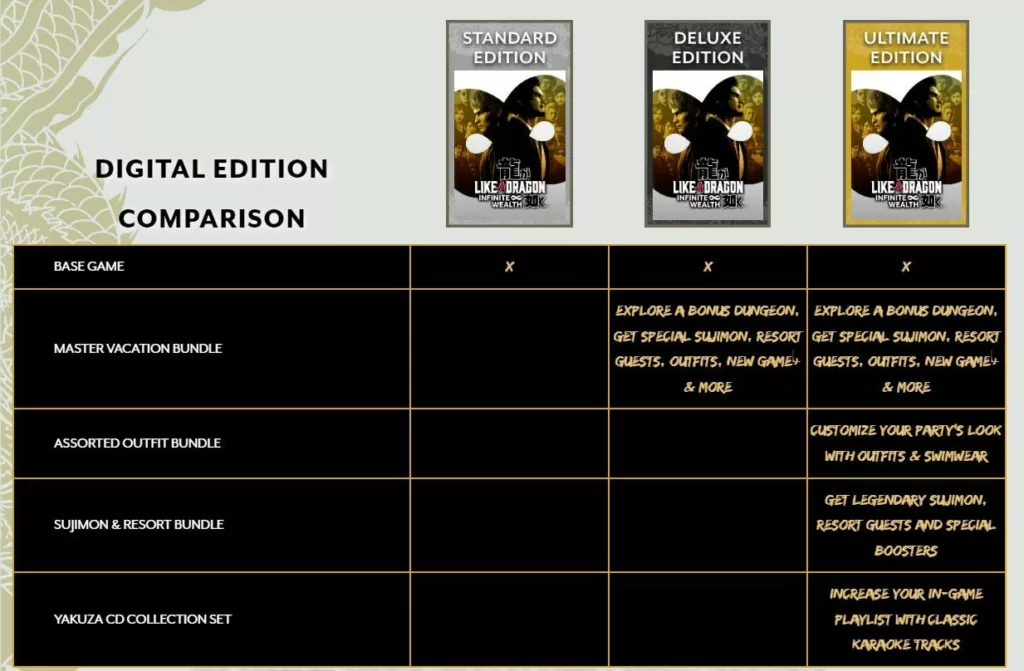In a move that has raised eyebrows and sparked debate among gamers, Sega’s latest release, “Like A Dragon: Infinite Wealth,” is making headlines for its unconventional marketing strategy. The game, a successor in the long-standing Yakuza series, has seemingly placed its New Game Plus mode behind a paywall, a decision that has stirred controversy in the gaming community.
The heart of the issue lies in the pricing structure of the game’s different editions. While the standard edition is priced at $70, it excludes the New Game Plus mode, a feature commonly expected in games of this genre and scale.
To access this mode, players are required to purchase either the Deluxe Edition at $85 or the Ultimate Version at $110. This pricing strategy not only challenges the norm of including such features in the base game but also pushes gamers to opt for more expensive versions for a complete gaming experience.
Invisible Boundaries: Hidden Details and Consumer Confusion
Further complicating matters is the lack of clear communication regarding this paywalled feature. The game’s official site, using a hard-to-read font, is the only place where this information is explicitly stated. Major gaming platforms like Steam and the PlayStation Store have no mention of this restriction, leading to potential confusion and frustration among buyers.
The issue came to light following a Reddit user’s inquiry to Sega, which was confirmed by Sega Support. This confirmation, alongside the absence of clear communication on popular gaming stores, points to a strategic, yet questionable, approach by Sega.
The Bigger Picture: A Trend in Paywalling Features
This move by Sega is reflective of a broader trend in the digital world, where companies leverage the ability to update software remotely to introduce paywalls for features. This practice, now emerging in various industries including the automotive sector, allows companies to offer basic versions of a product while reserving key features for premium, more expensive versions.
While this marketing strategy might initially seem lucrative, it risks alienating the core gaming community. Gamers, accustomed to receiving a full-fledged experience, especially in a series as established as Yakuza, may view this as a betrayal of trust. The backlash could be significant, potentially overshadowing the game’s content and quality.
As the gaming community awaits an official response from Sega regarding this decision, questions linger about the future of game marketing and the balance between profitability and consumer satisfaction.
